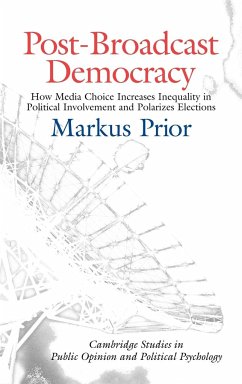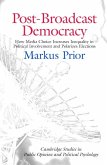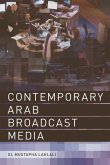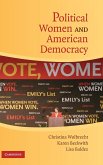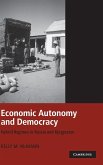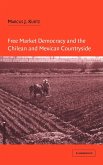The impact of the media on politics in the United States during the last half-century.
The media environment is changing. Today in the United States, the average viewer can choose from hundreds of channels, including several twenty-four hour news channels. News is on cell phones, on iPods, and online; it has become a ubiquitous and unavoidable reality in modern society. The purpose of this book is to examine systematically, how these differences in access and form of media affect political behaviour. Using experiments and new survey data, it shows how changes in the media environment reverberate through the political system, affecting news exposure, political learning, turnout, and voting behaviour.
Table of contents:
1. Introduction; 2. Conditional political learning; Part I. The Participatory Effects of Media Choice: 3. Broadcast television, political knowledge, and turnout; 4. From low choice to high choice: the impact of cable tv and internet on news exposure, political knowledge, and turnout; 5. From low choice to high choice: does greater media choice affect total news consumption and average turnout?; Part II. The Political Effects of Media Choice: 6. Broadcast television, partisanship, and the incumbency advantage; 7. Partisan polarization in the high-choice media environment; 8. Divided by choice: audience fragmentation and political inequality in the post-broadcast media environment.
Hinweis: Dieser Artikel kann nur an eine deutsche Lieferadresse ausgeliefert werden.
The media environment is changing. Today in the United States, the average viewer can choose from hundreds of channels, including several twenty-four hour news channels. News is on cell phones, on iPods, and online; it has become a ubiquitous and unavoidable reality in modern society. The purpose of this book is to examine systematically, how these differences in access and form of media affect political behaviour. Using experiments and new survey data, it shows how changes in the media environment reverberate through the political system, affecting news exposure, political learning, turnout, and voting behaviour.
Table of contents:
1. Introduction; 2. Conditional political learning; Part I. The Participatory Effects of Media Choice: 3. Broadcast television, political knowledge, and turnout; 4. From low choice to high choice: the impact of cable tv and internet on news exposure, political knowledge, and turnout; 5. From low choice to high choice: does greater media choice affect total news consumption and average turnout?; Part II. The Political Effects of Media Choice: 6. Broadcast television, partisanship, and the incumbency advantage; 7. Partisan polarization in the high-choice media environment; 8. Divided by choice: audience fragmentation and political inequality in the post-broadcast media environment.
Hinweis: Dieser Artikel kann nur an eine deutsche Lieferadresse ausgeliefert werden.

